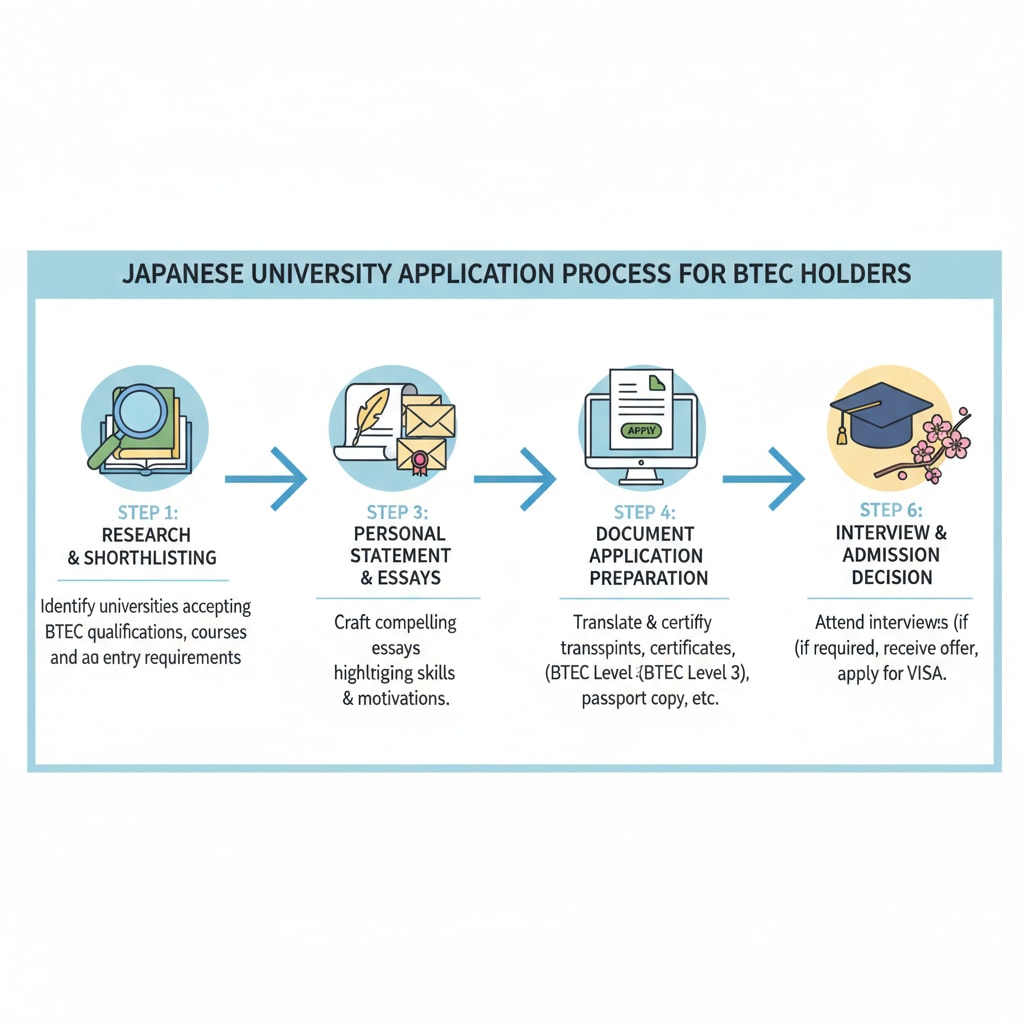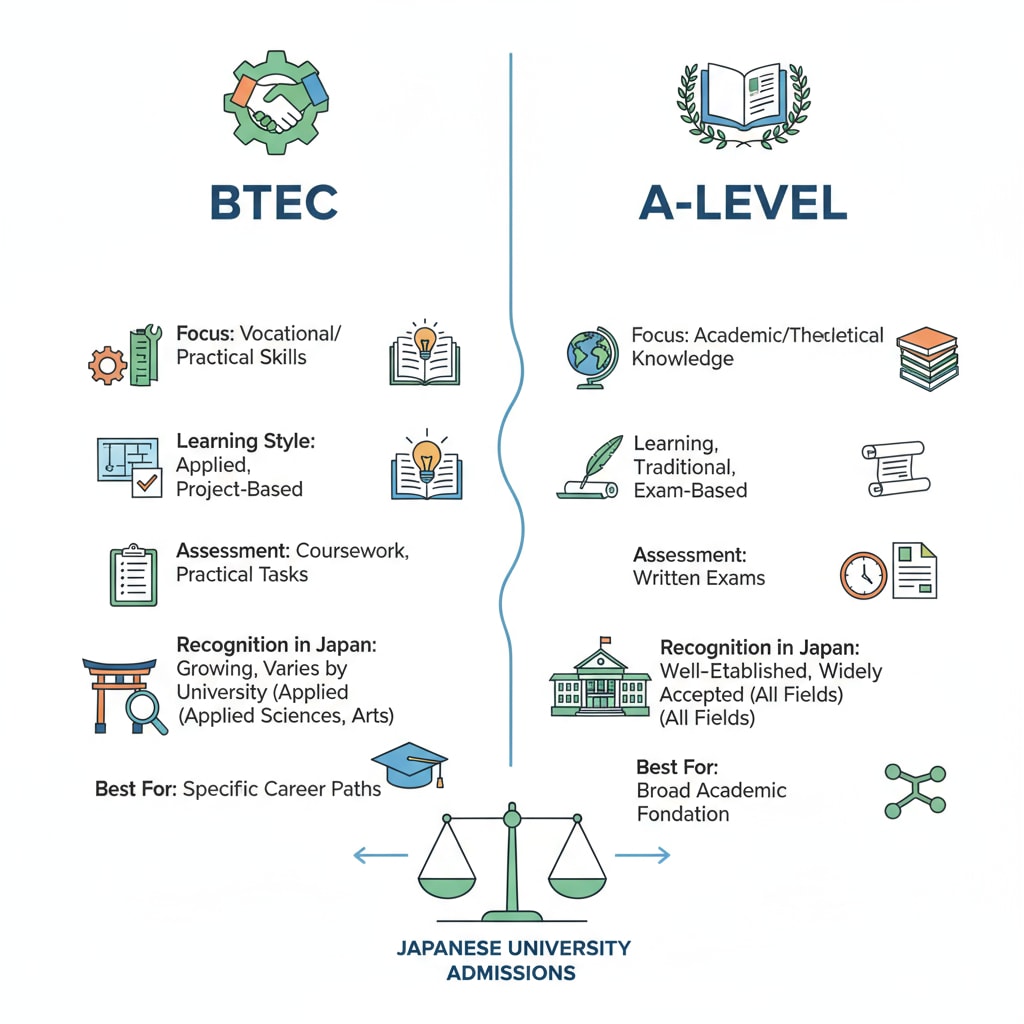For students holding a BTEC qualification and eyeing Japanese universities for further study, understanding the Japanese study abroad, BTEC qualifications, and university application requirements is crucial. This journey comes with its own set of challenges and opportunities.

The Recognition of International Qualifications in Japan
Japanese universities have a specific mechanism for recognizing international qualifications. Each institution evaluates foreign credentials to ensure they meet the academic standards set for admission. Generally, they look at the curriculum, the grading system, and the reputation of the awarding body. For example, universities often compare international qualifications to the Japanese high school curriculum. According to the Japanese Ministry of Education, Culture, Sports, Science and Technology, they strive to make fair and accurate assessments of international students’ academic backgrounds.
BTEC and A-level Equivalence
The question of whether BTEC is equivalent to A-levels in the eyes of Japanese universities is significant. BTEC qualifications focus on vocational and practical skills, while A-levels are more academic. However, some Japanese institutions may consider them comparable in terms of academic rigor. Some universities might require additional documentation or tests to determine equivalence. As per UCAS (Universities and Colleges Admissions Service), different UK qualifications have various levels of recognition globally, and this also applies to their acceptance in Japan.

Application Strategies for BTEC Holders
Firstly, it’s essential to research universities thoroughly. Identify those that are more open to international qualifications like BTEC. Secondly, prepare a strong personal statement highlighting your BTEC achievements, skills, and why you’re interested in studying in Japan. Additionally, obtain excellent reference letters from your BTEC instructors. These letters can attest to your academic abilities and work ethic.
Readability guidance: The key points here are to research universities, craft a strong personal statement, and get good reference letters. Each of these steps is crucial for a successful application.


